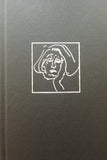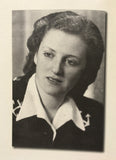Unmasked
Unmasked
Truda Rosenberg
6 X 9 inches, 96 pages
It took a very long time to decide on writing a history, albeit of my own experiences during the Shoah. I do not consider myself a writer, and prefer to state that I am a storyteller.
The few stories presented in this work are authentic episodes that hopefully describe essential instances I experienced as one of many of my people. It is important to stress that at no time did I or do I label my experiences as unique. Their existence is a fact and is presented here as an eyewitness account, a variant picture, which many of us encountered on a daily basis. Some of us were able to deal with the enemy's inhumane need to destroy us; many succumbed and lost the battle; others emerged as victors; still others are making an effort to live in spite of their tragedies. I was able to escape incarceration in a concentration camp with its brutal attack on human dignity and bodily endurance in the face of nourishment deprivations and illness, which would have contributed to an inability or lack of willpower to fight.
During the Shoah, I was living under three consecutive identities. When asked to what I attribute my survival, I answer without hesitation: "I knew who I was." This kept me fighting for life and survival as a human being with the celebration of life that I was taught, with a love of people and a love of life. This, to me, is survival.
Small Holocaust memoir packs a huge punch.
Written by Lynne Cohen - Jewish Tribune
When Polish-born psychologist Truda Rosenberg finally sat down on Sept. 5, 2007, to write her 94-page Holocaust memoir Unmasked (Penumbra Press), it happened to be the 65th anniversary of the day she was pushed from a cattle car moving towards the Nazi death camp Belzec, where eventually 500,000 Jews - including members of her close family - were killed.
The book - written chillingly in an almost matter-of-fact tone - is quite literally unbelievable.
Rosenberg's war-time life went from one near catastrophe to the next, ranging from jumping out of a moving train to transporting weapons into the Warsaw Ghetto (which was mentioned, incredibly, only casually in a brief aside); from lying cleverly over and over again to Nazi and SS authorities to working as a "Christian" slave; from surviving on starvation rations to pretending to be pregnant to avoid the selections; from hiding in a swamp all night to escape marauding dogs; to cooking on her knees "to avoid detection by snipers shooting from roofs across the street" to endangering her life by not taking communion. The risks and near misses go on and on.
But the book also describes her wonderful good fortune with dozens of kind and brave gentiles, who risked their lives to save her by hiding, moving and sharing food and clothing with her. One was Polish poet Zbigniwew Jasinski.







